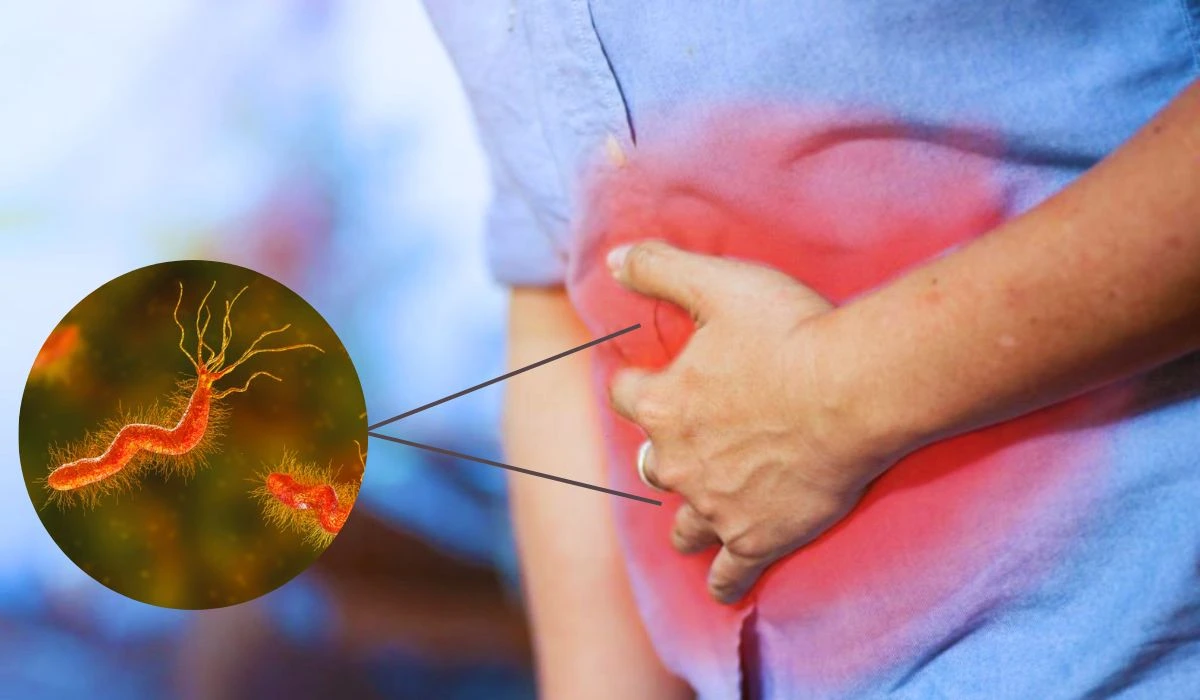A stomach ulcer, also known as a gastric ulcer, is a break in the lining of the stomach that allows stomach acid and juices to irritate the tissues underneath. Stomach ulcers are a relatively common condition, affecting approximately 4 million people in the United States each year.
While stomach ulcers can occur at any age, they are more common in adults over the age of 60. Understanding the symptoms, causes, and prevention methods for stomach ulcers is important for reducing risk and managing this uncomfortable condition.
Symptoms of Stomach Ulcer
There are several common signs and symptoms that may indicate the presence of a stomach ulcer. The most common symptom is a burning pain in the stomach, often felt between meals or during the night.

The pain can last for minutes to hours and may be relieved by eating certain foods or taking antacids. Other symptoms of a stomach ulcer can include:
- Bloating or burping
- Nausea
- Vomiting, especially vomiting up blood
- Unexplained weight loss
- Loss of appetite
- Feeling full after eating only a small amount
- Blood in the stool, which appears black or tarry
Some people with stomach ulcers may not experience any symptoms. Bleeding from the ulcer may be slow and go unnoticed, or the ulcer may be masked by other conditions like gastritis. Getting medical attention for persistent or worsening stomach pain is important for a proper diagnosis.
Causes of Stomach Ulcer
There are several factors that can contribute to the development of stomach ulcers. The most common causes are:
- Infection with H. pylori bacteria – This is the leading cause of stomach ulcers globally. The bacteria weaken and damage the protective coating of the stomach, allowing ulcers to form.
- Overuse of NSAIDs – Nonsteroidal anti-inflammatory drugs like aspirin and ibuprofen can irritate the stomach lining and make ulcers more likely to occur. This risk increases when NSAIDs are taken regularly or in high doses.
- Excess stomach acid – An increase in acid production can overwhelm the stomach’s protective mechanisms, especially in times of stress. Excess acid directly damages stomach tissue.
- Smoking cigarettes – Smoking increases ulcer risk by reducing protective factors in the stomach lining while also increasing acid production.
- Alcohol consumption – Drinking heavily and often is linked to a higher rate of ulcers.
- Family history – Individuals with family members who have had stomach ulcers may be more susceptible to developing them.
- Other factors like radiation therapy, severe burns or trauma, blood disorders, and cancers can also increase ulcer risk in some cases. Identifying the root cause helps guide treatment.
How to Prevent Stomach Ulcers?

Making certain lifestyle changes can help reduce your risk of developing painful stomach ulcers. Prevention tips include:
- Take NSAIDs sparingly and as directed – Minimize the use of NSAID pain relievers when possible and never exceed the recommended dosing. Avoid use if you have an active ulcer.
- Don’t smoke – Smoking cessation can significantly lower your chances of getting an ulcer.
- Limit alcohol intake – Drink alcohol in moderation, if at all. Avoid binge drinking.
- Manage stress – Find healthy ways to cope with unavoidable stress when possible. Prioritize relaxation.
- Improve diet – Eat more fruits, vegetables, and whole grains. Limit spicy, acidic, and fatty foods which can aggravate the stomach lining.
- Treat H. pylori infection – Get tested and take all medications as prescribed to eradicate H. pylori if present.
- Use medication – Your doctor may prescribe drugs to reduce stomach acid secretion if you are at higher risk for ulcers.
- See a doctor for pain – Persistent stomach pain should always be evaluated promptly for proper treatment.
Making lifestyle adjustments and working with your doctor can help prevent painful ulcers or catch them early on. Tell your doctor if you have a family history of ulcers as well.
Conclusion
Stomach ulcers are breaks in the protective lining of the stomach that allow irritation from digestive juices. They often cause burning abdominal pain made worse by hunger but relieved by food. Ulcers are commonly caused by H. pylori infection, frequent NSAID use, smoking, excess stomach acid, and other factors.
Preventive steps like minimizing NSAIDs, eradicating H. pylori if present, reducing stress, and eating a healthy diet can lower the risk. Seeking prompt medical care for stomach pain allows early treatment of ulcers to reduce complications. With proper care and prevention methods, most ulcers can be managed effectively.
FAQ
A: Stomach ulcers can occur anywhere in the stomach but are most often located in the gastric antrum and duodenum. The gastric antrum is in the lower part of the stomach before the pyloric valve. The duodenum is the first part of the small intestine, connecting to the stomach.
A: Most stomach ulcers will not heal on their own without proper medical treatment. The underlying cause needs to be addressed, which usually involves antibiotics to kill H. pylori bacteria if present. Other medication may be needed to reduce stomach acid secretion. Lifestyle changes also support the healing process.
A: Uncomplicated stomach ulcers typically heal in 4-8 weeks when properly treated. Healing can take longer if the ulcer is larger, there are complications like bleeding, or the individual continues behaviors that irritate the stomach lining. Complete healing may take up to a few months in difficult cases.
A: Over-the-counter antacids like Maalox, Tums, or Rolaids can provide short-term relief from ulcer pain and discomfort. Other options include H2 blockers like Pepcid or proton pump inhibitors like Prilosec. Foods that provide relief include bananas, yogurt, honey, aloe vera juice, and chamomile tea. Avoid trigger foods like coffee, citrus, alcohol, and NSAIDs.
A: Ulcers can lead to potentially life-threatening complications like bleeding, perforation, and blockages without proper treatment. However, the vast majority of ulcers will not be fatal if diagnosed and cared for appropriately. Urgent medical care is still vital for high-risk symptoms like vomiting blood. With doctor supervision, ulcers usually heal without severe complications.

